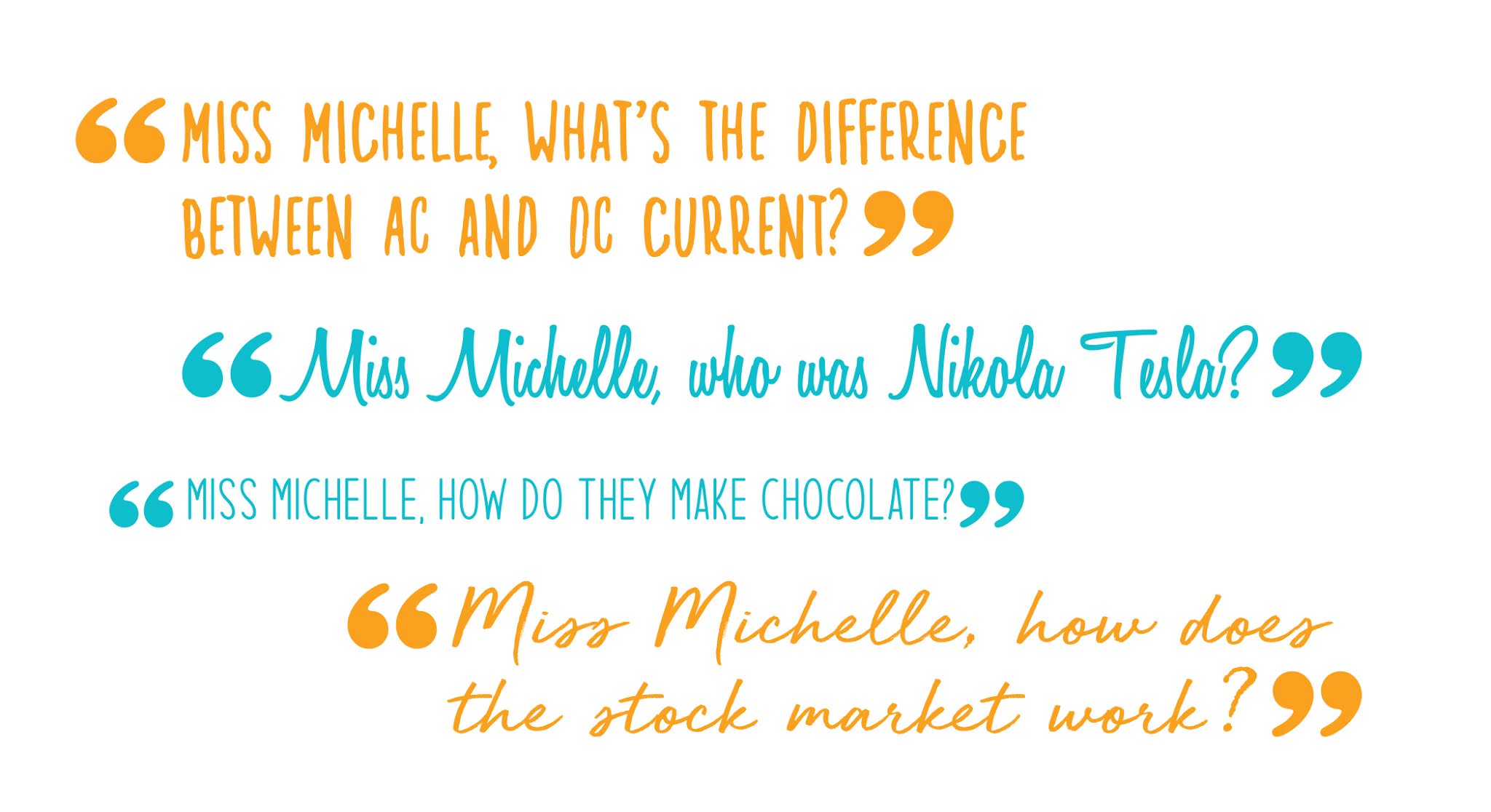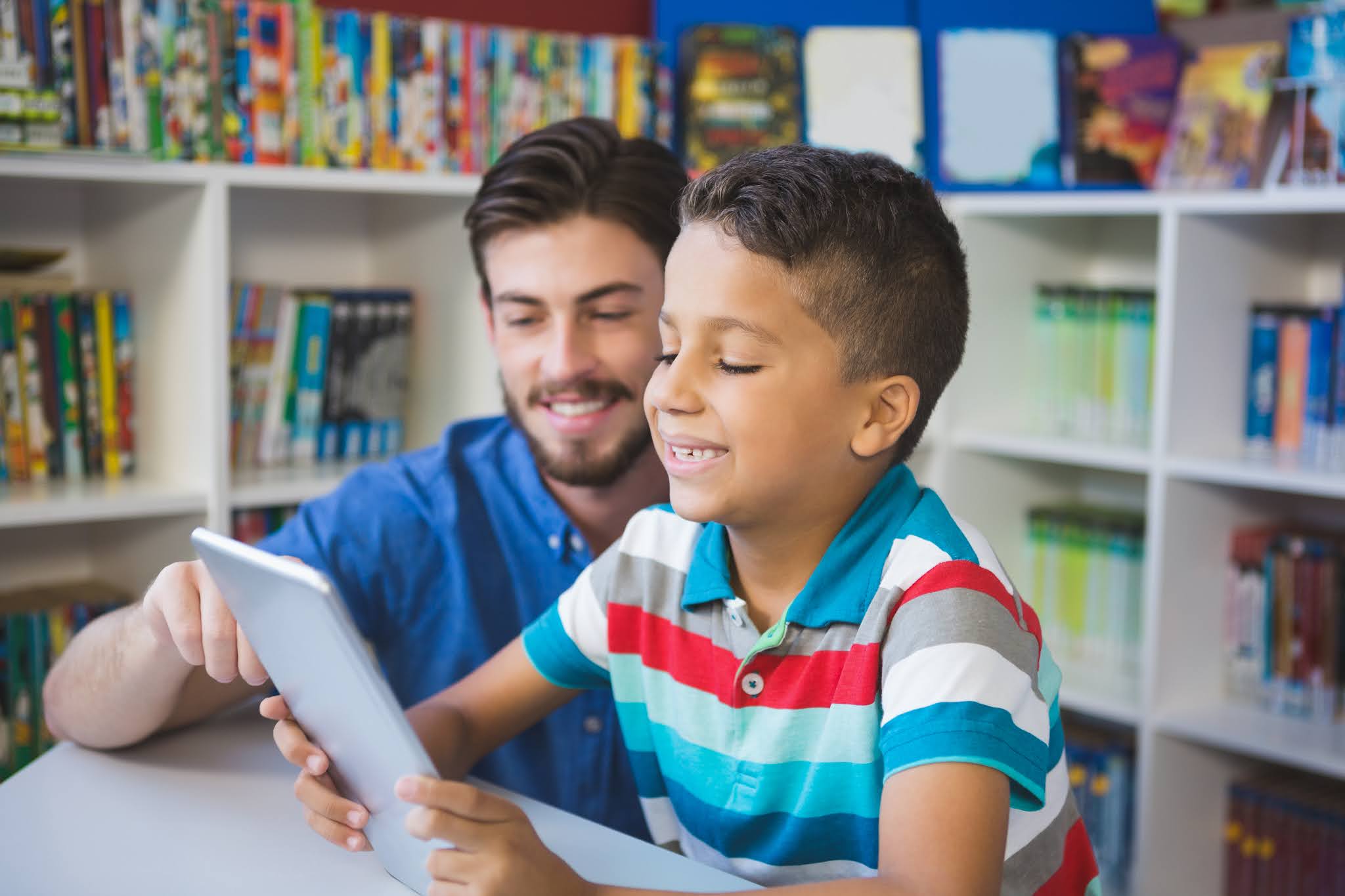
A child does not know why he is interested in a particular object or movement at a particular moment – the important thing is that he is interested, and that it is natural for his mind to grow just as his body does, therefore what interests him at the moment is appropriate for his needs.
—Maria Montessori
Maria Montessori Speaks to Parents, p. 23.
Maria Montessori Speaks to Parents, p. 23.
As an upper elementary Montessori teacher in a new school, I was often bombarded with questions from the children.

The Power of "I Don't Know"
My response was usually, “I don’t know. Let’s go find out.” Off we would go to the computer to search for information online. I know, some of you are thinking, “Why didn’t you go to an encyclopedia or other reference book?” Based on observation, I noticed that once those options were mentioned, my students’ interest would wane, and they would move on to something else before discovering the answer. Their interest didn’t extend to the time it took to use what they saw as old-fashioned, cumbersome materials.During many years of experiment and observation, I discovered that children learn naturally through activity, and that their characters develop through freedom. But these are general principles, which require practical application, and the Montessori materials have been evolved to meet this need.
—Maria Montessori
Maria Montessori Speaks to Parents, p. 20.
Maria Montessori Speaks to Parents, p. 20.
Like the evolution of Montessori materials, research materials have evolved. The use of the internet opens gateways to information that was once limited only to the books we had available. Now, we have the world at our fingertips. With the click of a few buttons, the answers to the universe unfold before us. This ability to gain understanding that adults so readily employ should be accessible to children, too. Affording them this opportunity can only lead to more spontaneity and creativity as they get answers to their questions.
My approach of letting students know that I don’t have all the answers and inviting them to actively participate in finding the answers themselves has led to some amazing learning opportunities. However, some teachers find this difficult to understand. This was the case with one of my co-teachers: “I would never admit that I don’t know something. It makes you look weak. If I don’t know an answer, I tell students that I’ll get back to them.” Surprised, I wondered if she really thought she knew it all. As Montessorians, we are called upon to be generalists. We know a little about many subjects. We can’t possibly know it all or have the answers to every question. And while I may have be known as the ‘grammar queen’ in every school in which I have taught, I am the first to admit when I am stumped. The challenge – and most importantly, the learning – comes from trying to figure out the answer.

In the article, The Power of I Don’t Know in the Learning Process, author Terry Heick tells us that true learning happens when the answer is no longer accessible inside us. It happens when we have to go find it. Using “I don’t know” is liberating for both the teacher and the student. The student is no longer burdened by thinking that the teacher always knows more than they do and that they are somehow less worthy because they don’t know. The teacher can rest easier because they no longer have to be all knowing. The context “moves from beyond an interaction between a teacher and student to everything else but the interaction between the teacher and the student.” (Heick) Similarly, Dr. Montessori told us that “Our goal is not so much the imparting of knowledge as the unveiling and developing of spiritual energy.” (The Child in the Family, p. 63.)
 Visualnote by Rebeca Zuniga Lee based on the work of Heather Wolpert-Gawron, The Power of "I Don't Know."
Visualnote by Rebeca Zuniga Lee based on the work of Heather Wolpert-Gawron, The Power of "I Don't Know."
When was the last time you told a student that you didn’t know the answer to their question? Did you leave it at that, or did you offer to find the answer together? Rather than feeling inadequate, use the power of “I don’t know” to drive the inquiry. After all, it’s usually not about the answer; as with most things Montessori, it’s about the process we use to get there.
 Visualnote by Rebeca Zuniga Lee based on the work of Heather Wolpert-Gawron, The Power of "I Don't Know."
Visualnote by Rebeca Zuniga Lee based on the work of Heather Wolpert-Gawron, The Power of "I Don't Know."When was the last time you told a student that you didn’t know the answer to their question? Did you leave it at that, or did you offer to find the answer together? Rather than feeling inadequate, use the power of “I don’t know” to drive the inquiry. After all, it’s usually not about the answer; as with most things Montessori, it’s about the process we use to get there.
Works Cited
Heick, Terry. The Power of I Don't Know in the Learning Process. Teach Thought.
As much as possible, NAMC’s web blog reflects the Montessori curriculum as provided in its teacher training programs. We realize and respect that Montessori schools are unique and may vary their schedules and offerings in accordance with the needs of their individual communities. We hope that our readers will find our articles useful and inspiring as a contribution to the global Montessori community.
© North American Montessori Center - originally posted in its entirety at Montessori Teacher Training on Tuesday, July 6, 2021.
© North American Montessori Center - originally posted in its entirety at Montessori Teacher Training on Tuesday, July 6, 2021.

0 comments:
Post a Comment
Have questions or comments? Let us know what you thought about this article!
We appreciate feedback and love to discuss with our readers further.